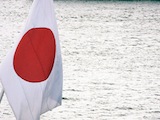As the World Slowdown Prolongs the Deflation, Japan Consumer Prices Fall
Post Views 0Japan’s consumer prices dropped for the first since June, sating a big doubt on central bank forecasts for the world’s third-biggest economy to emerge from more than a decade of deflation.
The statistics bureau said in Tokyo today that the consumer prices excluding fresh food slid 0.1 percent in the month of October from a year earlier. Barclays Capital and Morgan Stanley MUFG Securities Co. said that declines may persist for two years even as the Bank of Japan forecast gains of 0.1 percent for the year starting April and 0.5 percent in the following year.
Commodity prices are sinking on the risk of another global slump, while a yen trading near postwar highs has sliced the cost if imports. As Japan struggles to try and recover from the March earthquakes and tsunami that left around 19,000 people either dead or missing, declining prices might weigh on consumer spending and erode company profits. Government bond yields are poised for the biggest weekly gain since the month of January.
”It is highly probable that consumer prices will keep falling at a moderate pace as the effect of oil prices and the strong yen gradually surface,” said Yoshiki Shinke, who is a senior economist at Dailchi Life Research Institution in Tokyo. ”Prices growth isn’t in sight for Japan.”
As of 3:05 p.m. Tokyo time, the 10-year bond yields added three basis points to 1.025 percent at Japan Bond Trading Co., which is the nation’s largest interdealer debt broker. The 1 percent of the securities that are maturing in September 2012 lost 0.267 yen to 99.777 yen.
The International Monetary Find said during this week that without a more rapid economic growth, the nation faces the risk that its fiscal situation will deteriorate ”precariously.” The IMF has said that a decline in investor confidence could lead to a spike in government bond yields and make the debt level unsustainable.
The Asian stocks dropped for a third day today with Europe’s debt crisis still yet to be contained. As of 3:29 p.m. in Tokyo, the MSCI Asia Pacific Index slid 1 percent. Hungary lost its investment-grade rating at Moody’s Investors Service after almost 15 years, while the German Chancellor Angela Merkel sent equity markets tumbling yesterday by rejecting joint euro-area bonds.
Today, Japanese Finance Minister Jun Azumi said that he’s cautiously watching currency markets after three interventions this year to weaken the yen. Yesterday, Standard & Poor’s said that Prime Minister Yoshihiko Noda’s administration hasn’t make progress in tackling the public debt burden, which is an indication that it may be preparing to lower the nation’s sovereign grade.
As of 4:15 p.m. local time, the Japanese currency traded at 77.38 per dollar, compared with a post World War II record of 75.35 last month. Today, BOJ Governor Masaaki Shirakawa said that Europe’s debt crisis has already been affecting Japan by causing the yen to strengthen and stocks to decline.
”We must carefully watch how the development of global capital and financial markets will affect” Japan’s financial system and economy, said Shirakawa in a speech in Tokyo today.
As the World Slowdown Prolongs the Deflation, Japan Consumer Prices Fall by Harrison Barnes



 Expected Changes in 2016 to the Workplace
Expected Changes in 2016 to the Workplace  Chicago’s Top Tech Companies
Chicago’s Top Tech Companies  Top Canadian Companies You Want to Work For
Top Canadian Companies You Want to Work For  November Posts Another Strong Job Report
November Posts Another Strong Job Report